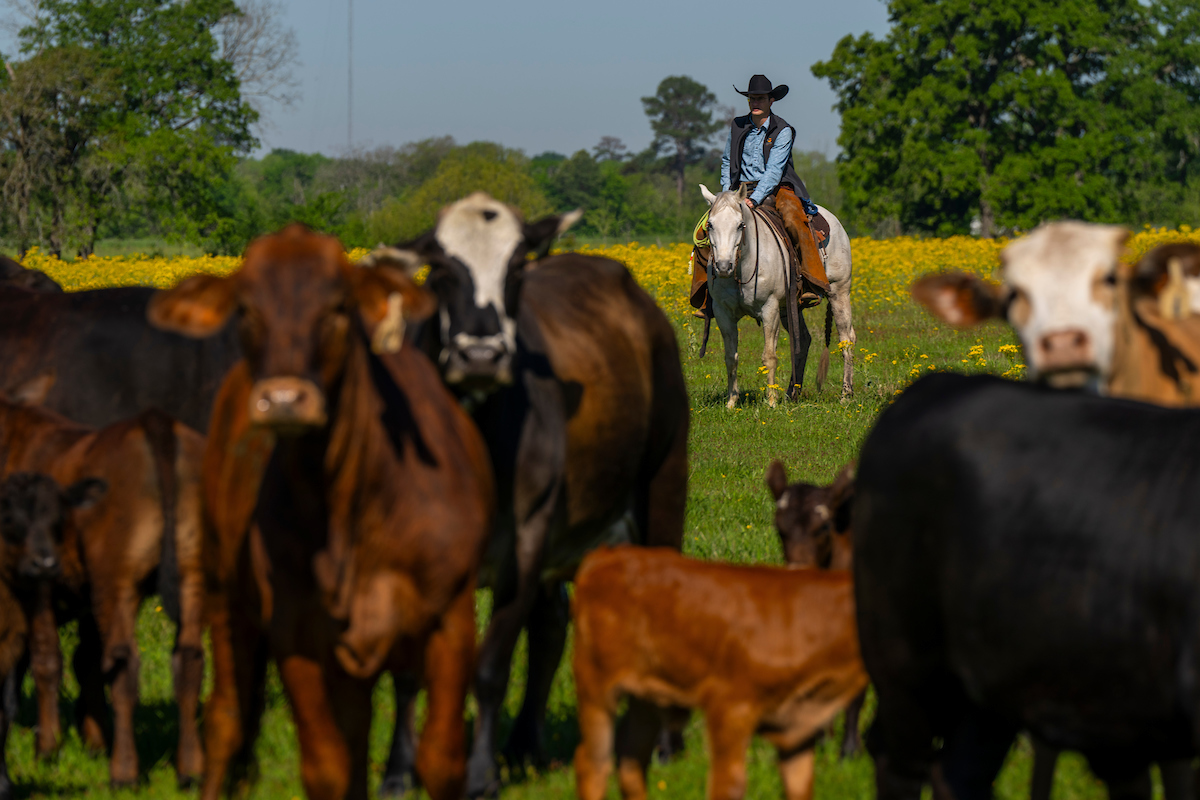Improving resiliency, sustainability in urban communities
Grant to AgriLife Extension helping at-risk youth in Bexar, Harris counties
SAN ANTONIO — A five-year year, $670,000 grant from the Children, Youth and Families At-Risk, or CYFAR, program is helping improve the lives of young people and their families in low-income, inner-city communities in Bexar and Harris counties.
“CYFAR supports comprehensive, community-based programs requiring active participation to ensure the critical needs of children and families are met,” said Dr. Melinda Garcia, a Texas A&M AgriLife Extension Service program specialist and CYFAR program coordinator for Bexar County. “It promotes building resiliency in youth, families and communities.”
The National Institute of Food and Agriculture of the U.S. Department of Agriculture awards CYFAR grants to help the Cooperative Extension System and land-grant institutions use their resources to assist individuals who may be at risk of not developing the skills needed to live productive and positive lives.
Garcia said AgriLife Extension in Bexar and Harris counties are using the funding to develop and implement sustainable communities projects initiatives. Both counties have completed the first year of grant-funded activities and have laid out plans for continuing to meet CYFAR goals.
These goals include teaching youth about nutrition and food preparation; providing them opportunities to learn about science, technology, math and engineering, or STEM, subjects; helping them develop a respect for nature; and helping them acquire the knowledge and skills needed for higher education and a career.
“Through this grant, we are giving young people the opportunity to join and participate through their 4-H clubs,” Garcia said. “In Texas, 4-H is administered by AgriLife Extension. These clubs provide young people opportunities for knowledge and skills that will serve them a lifetime.
“In San Antonio, we are using CYFAR grant funding to provide educational opportunities through the Knights 4-H club of St. John Berchmans Catholic School, which is a kindergarten through eighth-grade school on the west side of San Antonio. Similar efforts have been been underway in Houston.”
Garcia said St. John Berchmans was chosen because it is located in a low-income area of the city and is one of the most resource-limited schools in the Archdiocese of San Antonio.
School principal Beverly Abbott said she was happy to have the supplemental youth education and development opportunities afforded by the CYFAR grant and AgriLife Extension.
“In addition to learning self-discipline and self-confidence, these opportunities also give the students a chance to see practical applications of what they are learning in school,” Abbott said. “We want our students to be open to learning new things and developing their own skills and talents, and we also want them to grow up to be good stewards of the earth.”

Abbott, who has a background in science, also said she was especially pleased with the emphasis on STEM subjects as part of the CYFAR-related efforts.
“Students also need to learn practical things like how to do their own measurements and get their own statistics,” she said. “At the recent summer robotics camp that was held as part of CYFAR activities, for example, some of our students saw how what they were learning in pre-algebra and algebra can be applied in real life.”
Gael Ayala, a seventh-grader from St. John Berchmans, was one of 20 students from the school who recently attended the robotics camp at St. Mary’s University as part of grant-related summer activities. The camp was taught by three of the university’s engineering professors. Students had an opportunity to tour the campus and learn about robotics from the professors.
“It was really fun to be part of the camp,” Ayala said. “I learned a lot about robotics and especially how to program the robots to do certain tasks. “We used a laptop to go to a website that allowed us to program instructions for the robots, like direction, speed and the amount of time they would run.”
Ayala said he has been considering computer programming as a possible field of study.
“One of the many goals of the CYFAR grant is to help expose minority students to higher education and show them college is attainable,” Garcia said. “By giving these young people the opportunity to go on field trips and to be exposed to colleges and universities, or to have them mentored by college students or learn from college instructors, we let them see what’s possible.”

In Harris County this summer, AgriLife Extension worked with Christo Rey Jesuit College Preparatory School of Houston to present the Harris County Sustainable Communities Project Leadership Camp in Huntsville. The camp provided 43 high school students the opportunity to engage in a traditional camp setting that featured 4-H team-building activities. Educational, career and life-skills subjects emphasized were leadership, nutrition, veterinary science, agricultural business and watershed stewardship.
“The AgriLife Extension and Cristo Rey Jesuit partnership this year had a mission to expose urban youth to agrisciences, career options, agricultural collegiate programs, health and community sustainability,” said Fralonda Aubrey, AgriLife Extension county agent for Harris County. “We also wanted to enhance the understanding of agricultural sciences, engineering and agribusiness for youth in urban areas.”
Aubrey said to continue the momentum of the Harris County project, there are plans to implement the 4-H AgriScience/Biotechnology Program within the student curriculum and to launch a Cristo Rey Youth AgriScience 4-H Club. Other future activities will include construction of a school garden, and university and agriculture-related tours.
Another objective of these CYFAR-funded sustainable community projects is for minority students to acquire sound dietary habits.
“We want these students to learn about agriculture and the importance of agriculture in their daily lives,” Garcia said. “And what better way to learn and teach others than by building a garden, caring for it, harvesting the produce and preparing food made with the harvest.”
To meet this goal, a group of St. John Berchmans students, administrators and members of the Bexar County Master Gardener program, a volunteer horticulture program of AgriLife Extension, built and planted the “Giving Garden” on school grounds. They constructed 10 raised-bed gardens in which they planted okra, beans, peppers, tomatoes, squash, herbs and sunflowers.

“While members of the school’s 4-H club will be evaluated for the grant, the entire school is welcomed and encouraged to participate in the Giving Garden,” Garcia said.
This summer 15-25 students involved in the garden project have been coming to the school each Thursday morning to tend the garden and receive advice and instruction from Bexar County Master Gardener John Mayer.
In addition to his own instruction, Mayer will teach from the Learn, Grow, Eat and Go! 4-H curriculum, which tells students about planting and maintaining a vegetable garden, entomology, nutrition and more.
“We get a lot of cool information about plants and about learning to care for plants,” said Stevie Rios, 13, an eighth-grader at the school. “It’s fun working with other students from the school.
My dad and I also grow roses in the yard at home, and I get a lot of good information here about how to take care of them. I’m thinking of asking my parents if we can plant a vegetable garden.”
Future activities AgriLife Extension in Bexar County will pursue through the CYFAR grant include additional college and university tours, educational field trips to agriculture-oriented businesses and cooking instruction using recipes with ingredients to include vegetables and herbs grown in and harvested from the Giving Garden.
“It will be exciting and rewarding to continue these CYFAR-funded activities in Bexar and Harris counties and to help these young people acquire more knowledge and develop more life skills over the next four years,” Garcia said.





